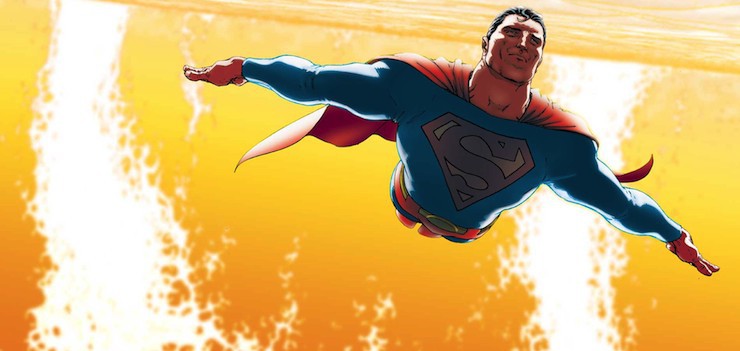Comics scribe Grant Morrison is often cited for penning what some call the ultimate ode to DC’s central hero: the standalone All-Star Superman. But the truth is, Morrison has been writing stories featuring Clark Kent for near 20 years now, and it has given him ample time to comment on the character and his function in the realm of superheroics. Over at Den of Geek, Jim Dandeneau postulates that Morrison has given fans a very thorough depiction of the character—told out of order. With a little shuffling, he’s given readers a brand new way to experience Morrison’s take on Superman.
The idea came to him through the popularization of the “Hatchet Order,” as it is often called:
“Hatchet order” is a term that only recently snuck into common usage (if one defines common usage as “blogs that ceaselessly complain about how to show one’s children the Star Wars movies without having to watch Episode 1 again” which…you know…:points to self:), but I thought when I went back to Morrison’s Superman “I have all these books. Why don’t, reboots be damned, I try and read them in chronological order for the character?”
By shuffling around Morrison’s canon, Dandeneau has come up with a new way of reading the comics that focus in on Grant Morrison’s specific mythology for the character. This includes taking stories where Superman’s absence is notable, and postulating what said absence is meant to impart to the reader about how Superman is different from other heroes. For example, here is what he has to say about The Society of Super-Heroes #1:
What, you may be asking, the hell does this have to do with Superman? I didn’t get it either until the last time I read it: Fate almost calls Atom “Superman,” and that’s why this works well here. If Pratt is this world’s Superman analogue, he’s broken and beaten down and had his moral core chipped away over the course of a grueling five-year war until the only option he sees for himself to save the day is to kill Blockbuster.
All-Star Superman is the completion of the arc in this reorder, and the result is helpful contextualization of the story that Morrison has been telling with Superman all along. It is a pointed and sharp guide to what makes Superman special and particularly what makes him good, in the purest sense of the word. For fans burned out by the darker version of DC on film, this reading list is likely to cure what ails them.
Check out the list here, and pick up some comics for spring reading!










